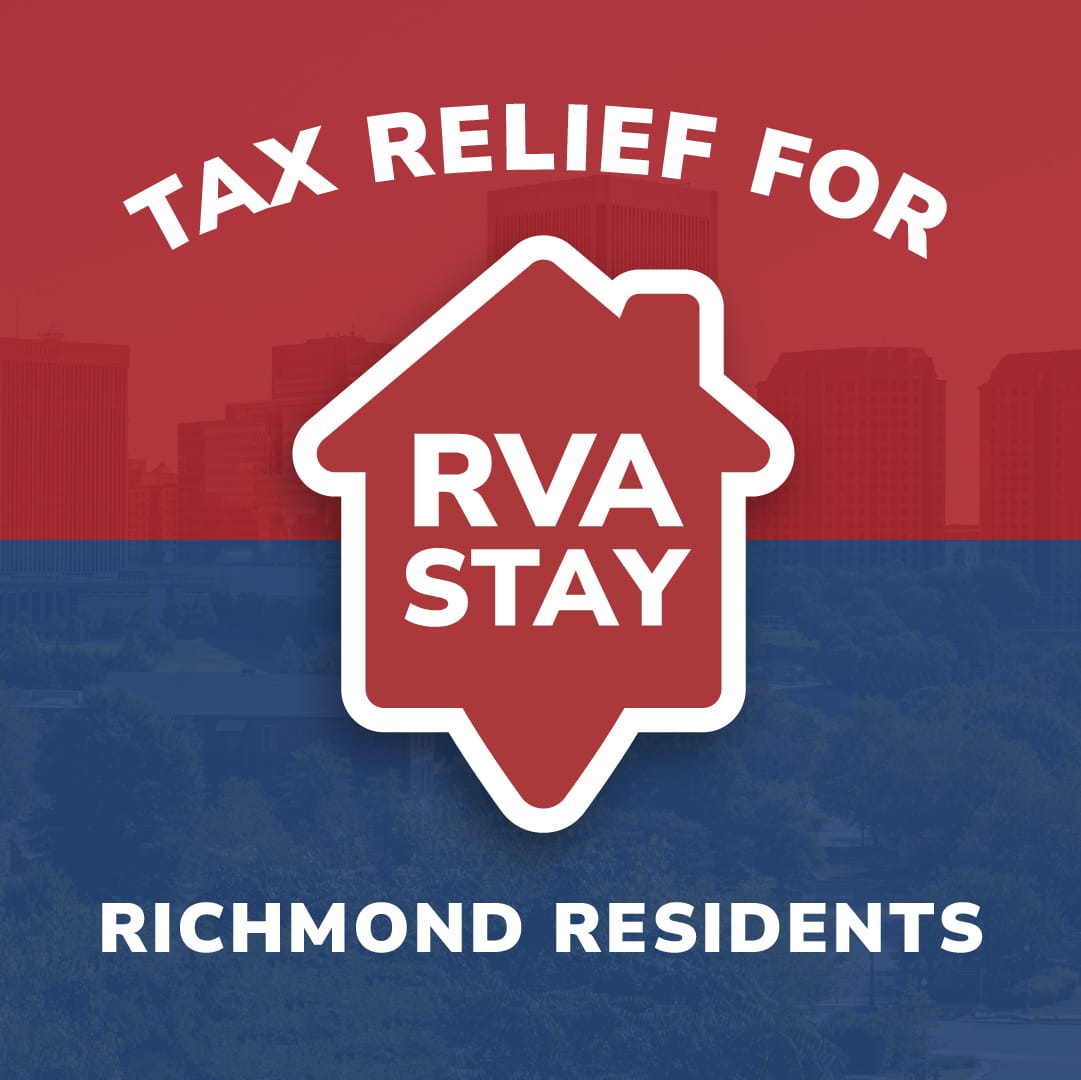Stoney proposes one-time tax rebate as alternative to lowering rate

Mayor Levar Stoney’s administration wants to send all Richmond property owners a tax rebate payment next year instead of lowering the city’s real estate tax rate by 4 cents as City Councilor Reva Trammell (8th District) has proposed.
On Monday, Stoney also proposed several new targeted tax relief programs that would help lower-income and elderly Richmonders struggling with housing affordability as home values and property tax bills have surged upward.
Two other council members — Councilors Ellen Robertson (6th District) and Anne-Frances Lambert (3rd District) — have signed on to Trammell’s proposal to lower the rate to $1.16 per $100 of assessed value. The rate has been set at $1.20 since 2008, and the Stoney administration has recommended leaving it there.
The mayor’s plan, dubbed RVA Stay, would provide all property owners a one-time rebate check in 2025 equivalent to the four-cent reduction in the tax rate. The size of the rebates would vary based on property values. For the average homeowner with a property worth $366,163, it would work out to a roughly $150 rebate.
Stoney’s proposal also includes a new “Gap Grant Pilot Program” that would provide up to $200 a month for six months to low-income residents who spend more than 30% of their yearly income on housing, including renters. Some homeowners who are at least 65 years old or permanently disabled could also have their property tax bills frozen in place under another new program Stoney is suggesting, shielding them from increases future increases as tax assessments go up.
“The proposals announced today are how we provide fiscally responsible, targeted relief to those who need it the most, and an across-the-board rebate for all Richmond property owners. It is a both/and approach without cutting the City’s main source of revenue to provide critical city services for our residents,” Stoney said in a news release. “I am proud of my administration for being innovative in how we help both homeowners and renters in a meaningful way.”
The Stoney administration said the one-time rebate payments would go out early next year and could be funded with surplus money from the city’s budget year that ended June 30. The exact size of that surplus is unclear, and officials say they won’t have a final number until December.
Chief Administrative Officer Lincoln Saunders presented the plan to the City Council’s Organizational Development Committee late Monday afternoon, pitching it as a better option than lowering the rate.
Trammell expressed bewilderment at why the administration had said the city couldn’t afford her proposal and now “all of a sudden” there’s enough money to pay for the mayor’s one-time alternative.
“I just don’t understand. Last week we had no money,” Trammell said.
Saunders conceded that the roughly $3.2 million hit to the city’s current budget from adopting Trammell’s proposal wouldn’t cause major fiscal issues in the near term.
The administration is more concerned, he said, about paying for future budget growth, particularly the roughly $25 million in new funds the city projects it will have to come up with every year to cover rising compensation costs for City Hall employees under collective bargaining agreements.
“I can’t stand here and tell you today that you will be able to meet some of these obligations,” Saunders cautioned.
Further discussion ahead
Several City Council members thanked Saunders for his presentation and said they expect to have a more robust discussion on the various options at another meeting happening Thursday.
The administration said recipients would have to apply for both of the new programs and meet several eligibility criteria, including enrolling in “workforce development and financial planning sessions” in order to qualify for the $200 in monthly aid.
Both the gap grants and freeze programs would be subject to income-based restrictions, a rule the city said is legally doable because the programs would be administered through social services officials. Richmond has sought permission from the General Assembly to pursue income-based tax relief programs that aren’t currently allowed under state law. That proposal has not passed the statehouse.
Public housing tenants who pay rent to the Richmond Redevelopment and Housing Authority wouldn’t be eligible for the rental assistance Stoney envisions, according to the city.
Council reaction
In their initial discussion, multiple council members questioned whether City Hall is equipped to help eligible residents get the relief by guiding them through the application process.
“I’m really concerned about our seniors who do not have family members to help them navigate through a lot of this paperwork and minutiae,” said Robertson.
“Are they going to be able to call somebody and them actually pick up the phone?,” said Councilor Nicole Jones (9th District).
Several council members also stressed that housing affordability is an issue for a broad group of Richmonders, not just the city’s poorest and oldest residents.
“There is still a huge, huge share of our population that are more interested in looking for a home in Varina or somewhere else that they could still buy a decent home at an affordable price,” said Robertson.
Saunders said the administration will soon introduce ordinances the council would need to approve in order to carry out Stoney’s plan.
On Thursday, the council’s Finance and Economic Development Committee is scheduled to take up the competing ordinances to keep the rate at $1.20 or lower it to $1.16.






